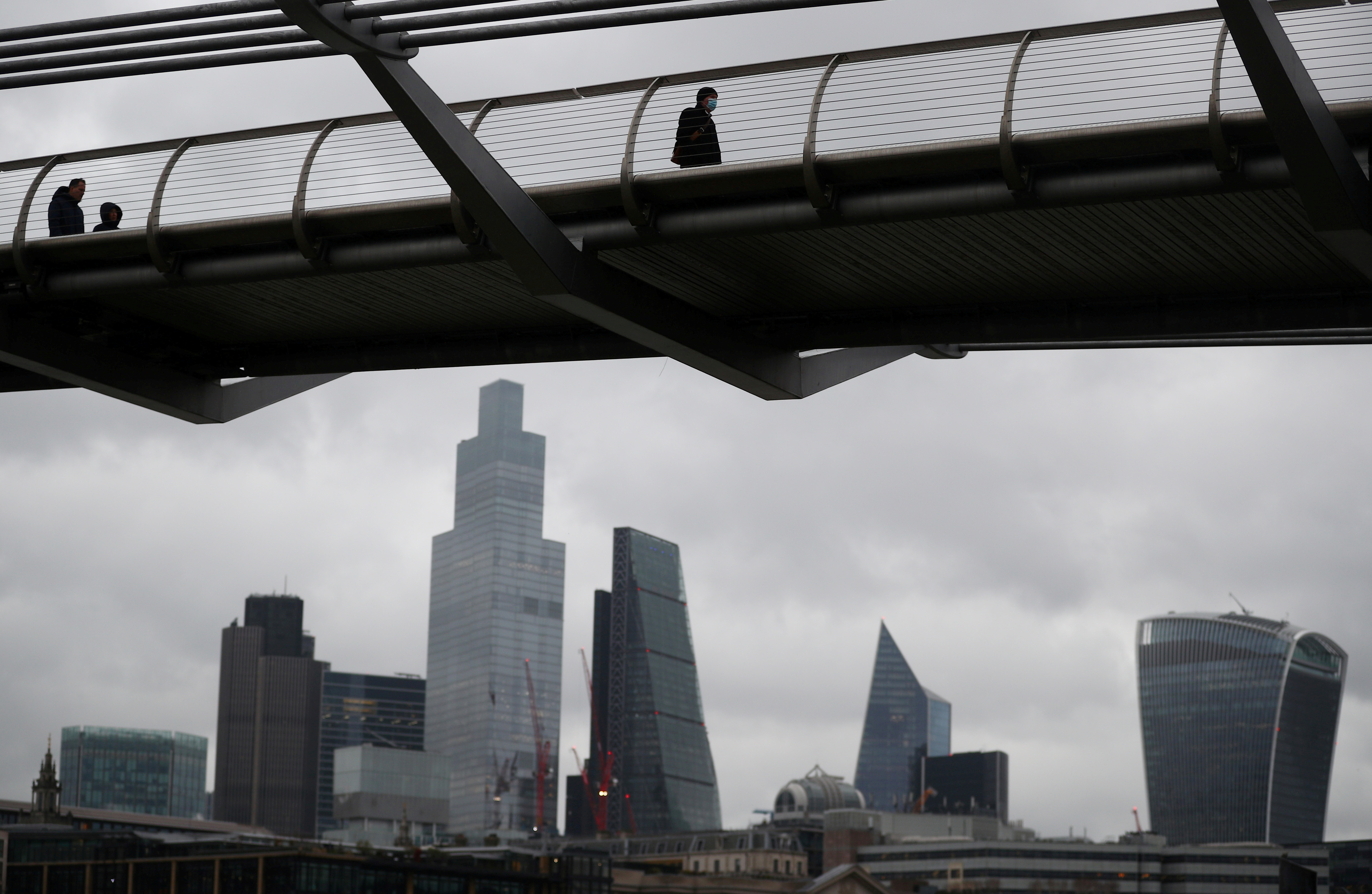Summary
- GDP in Q3 -0.2% q/q vs Reuters poll -0.5%
- Sept economic output -0.6% m/m vs poll -0.4%
- GDP in August and July revised up
- Economists still see UK moving into recession
- Finance minister projects “tough road ahead”
Britain’s economy contracted in the third quarter at the start of what is likely to be a protracted recession, highlighting the challenge for finance minister Jeremy Hunt as he gets ready to raise taxes and slash spending next week.

Economic output contracted by 0.2% in the third quarter, less than the 0.5% contraction analysts had forecast in a Reuters poll, according to Friday’s official data. But it was the first drop in gross domestic product since the beginning of last year, when Britain was still under strict coronavirus curbs, as businesses and households grapple with a severe cost-of-living crisis.
Britain’s economy is currently further below its pre-pandemic size – it is the only Group of Seven economy yet to bounce back fully from the COVID slump – and is smaller compared to how it was three years ago on a calendar-quarter basis.
The Resolution Foundation think tank said that although the drop was more insignificant than investors had feared, it left Britain on course for its quickest return to recession since the mid-1970s.
Its research director James Smith said the figures gave a daunting backdrop for Hunt’s Nov. 17 budget announcement, when he will attempt to persuade investors that Britain can rebuild its public finances – and its credibility on economic policy – after Liz Truss’s brief time as prime minister.
Smith stated:
“The Chancellor will need to strike a balance between putting the public finances on a sustainable footing, without making the cost-of-living crisis even worse, or hitting already stretched public services.”
Responding to the data, Hunt reiterated his warnings that drastic decisions on tax and spending would be required. Hunt said in a statement:
“I am under no illusion that there is a tough road ahead – one which will require extremely difficult decisions to restore confidence and economic stability. But to achieve long-term, sustainable growth, we need to grip inflation, balance the books and get debt falling. There is no other way.”
UK Recession Reality
The Bank of England said last week that Britain’s economy was set to enter a recession that would persist for two years if interest rates were to increase as much as investors had been estimating.
Even without additional rate rises, the economy would contract in five of the six quarters until the end of next year, it said.
“Fears of a UK recession are turning into reality,” Suren Thiru, economics director for the Institute of Chartered Accountants in England and Wales, said.
“This fall in output is the start of a punishing period as higher inflation, energy bills and interest rates clobber incomes, pushing us into a technical recession from the end of this year.”
In September alone, when the funeral of Queen Elizabeth was commemorated with a one-off public holiday that closed many businesses, Britain’s economy contracted by 0.6%, according to the Office for National Statistics.
Buy Crypto NowThat was a larger monthly fall compared to a median forecast for a 0.4% contraction in the Reuters poll and the biggest since January last year, when there was a COVID-19 lockdown.
But gross domestic product data for August was reviewed to indicate a marginal 0.1% shrinkage compared with an original reading of a 0.3% contraction, and GDP for the previous month was now seen as having increased by 0.3%, up against a previous estimate of 0.1%.
The upward revisions to August and July’s GDP data mostly revealed new, quarterly figures on health and education output, together with some stronger readings from the scientific and professional and retail and wholesale sectors, the ONS said.








